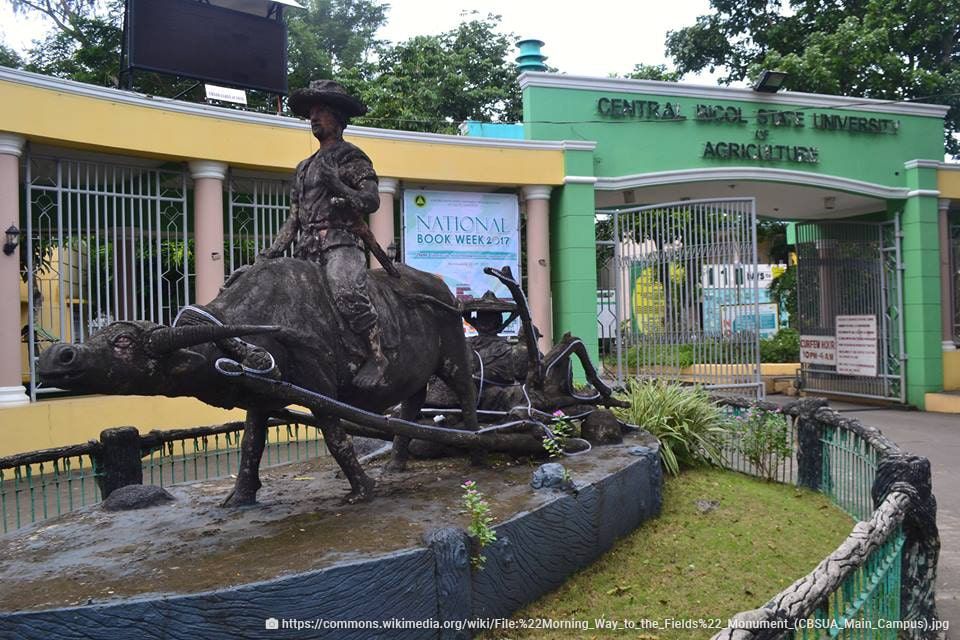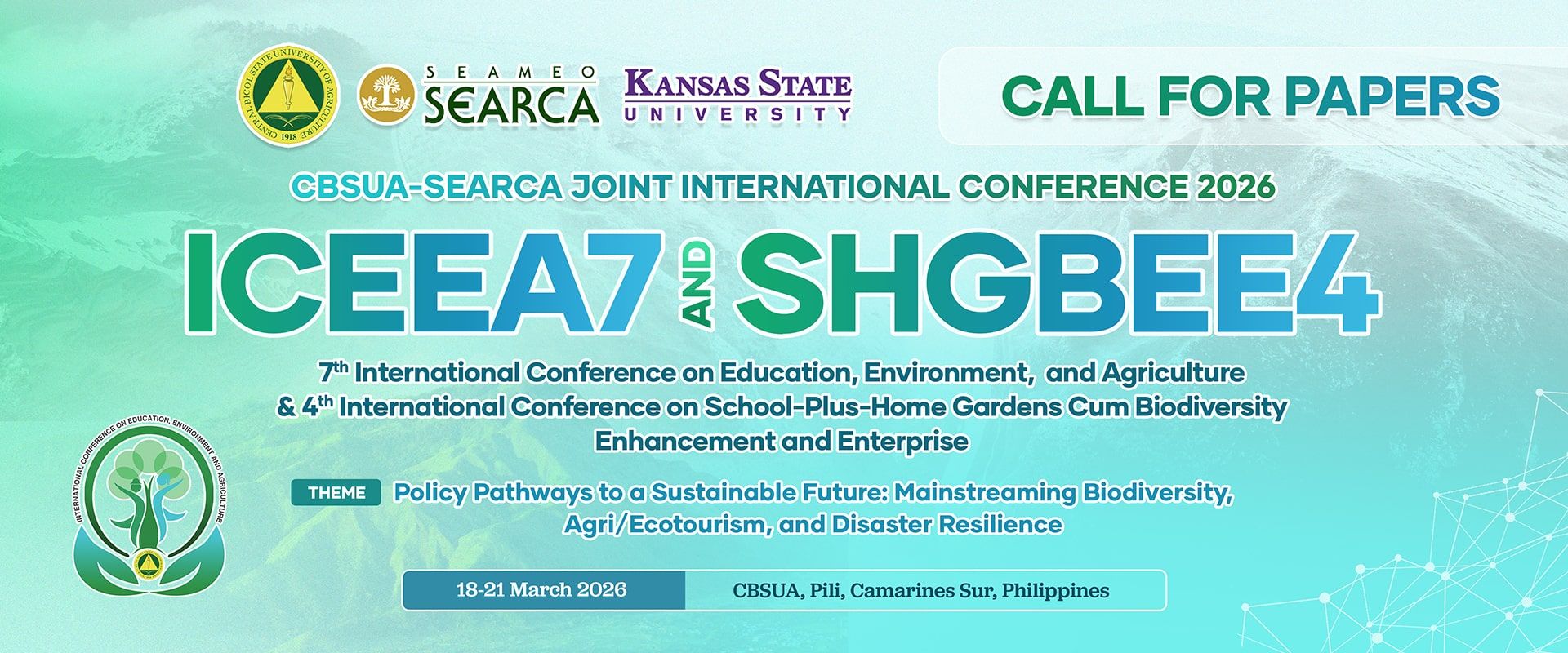
CBSUA-SEARCA Joint International Conference 2026: ICEEA7 and SHGBEE4
"Policy Pathways to a Sustainable Future: Mainstreaming Biodiversity, Agri/Ecotourism, and Disaster Resilience"
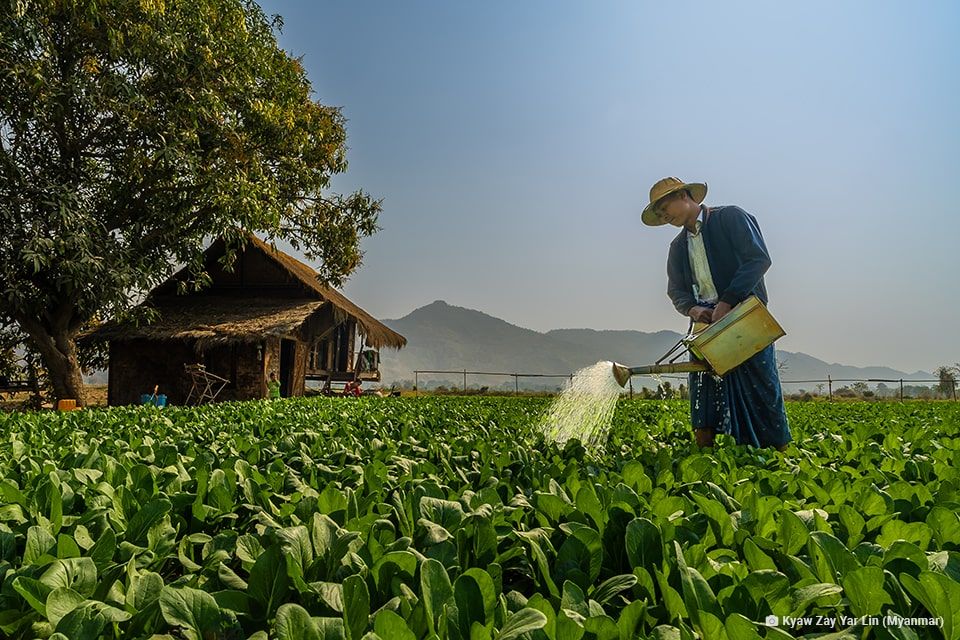
Call for Abstracts and Posters
The 7th International Conference on Education, Environment, and Agriculture (ICEEA7) and the 4th International Conference on School-plus-Home Gardens cum Biodiversity Enhancement and Enterprise (SHGBEE4)
Biodiversity underpins food systems, ecosystem services, and climatic stability but is increasingly at risk from unsustainable practices. Its degradation compromises these critical systems, while climate-related disasters result in an average of PHP 44 billion in yearly agricultural damages (PIDS, 2023).
Investing in disaster resilience programs is therefore necessary to ensure that communities, particularly the most vulnerable ones, can withstand and recover from natural hazards without losing development gains.
Concurrently, agri/ecotourism offers a sustainable option to protect biodiversity with the diversification of rural economies, job creation, and reinforcement of cultural identity when integrated in sustainable land and resource management policy frameworks.
Combining the multidimensional challenges of food insecurity, loss of biodiversity, and disaster risks caused by climate change, therefore, requires policies that link environmental stewardship with economic and social resilience.
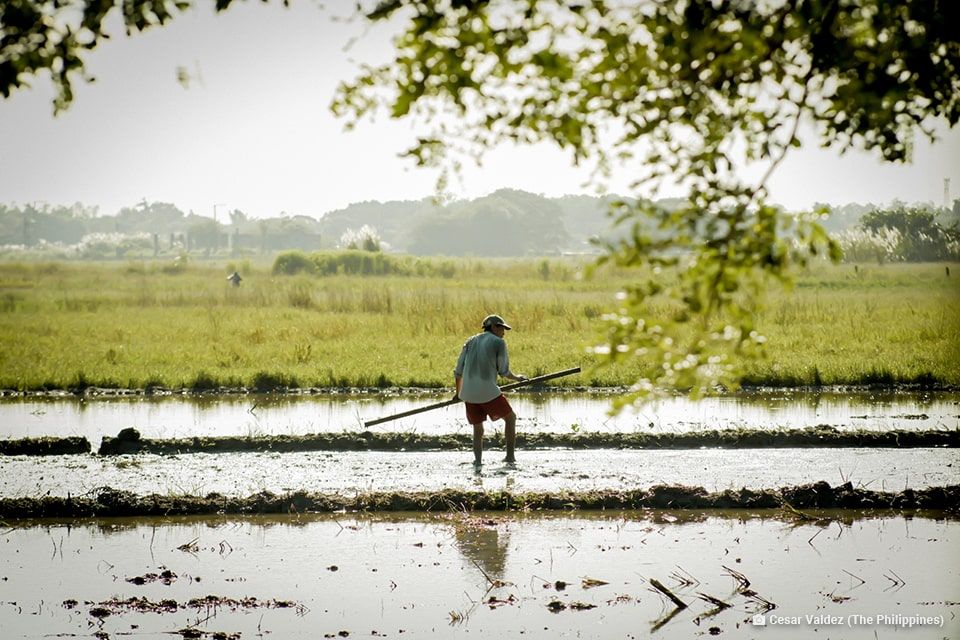
With the Philippines being the world's 10th most climate-vulnerable nation (Climate Risk Index, 2025) and possessing more than 52% of the known species in ASEAN (DENR-BMB, 2022), immediate action is necessary to integrate biodiversity conservation, agri/ecotourism development, and disaster resilience into a unified policy agenda.
Mainstreaming these into policies and programs can:
- Restore ecosystems
- Secure livelihoods
- Strengthen communities against environmental and economic shocks
These policy pathways must:
- Integrate biodiversity conservation into agriculture, education, and community development
- Support the adoption of agri/ecotourism as livelihood diversification and conservation financing
- Institutionalize disaster risk reduction into community, enterprise, and tourist planning
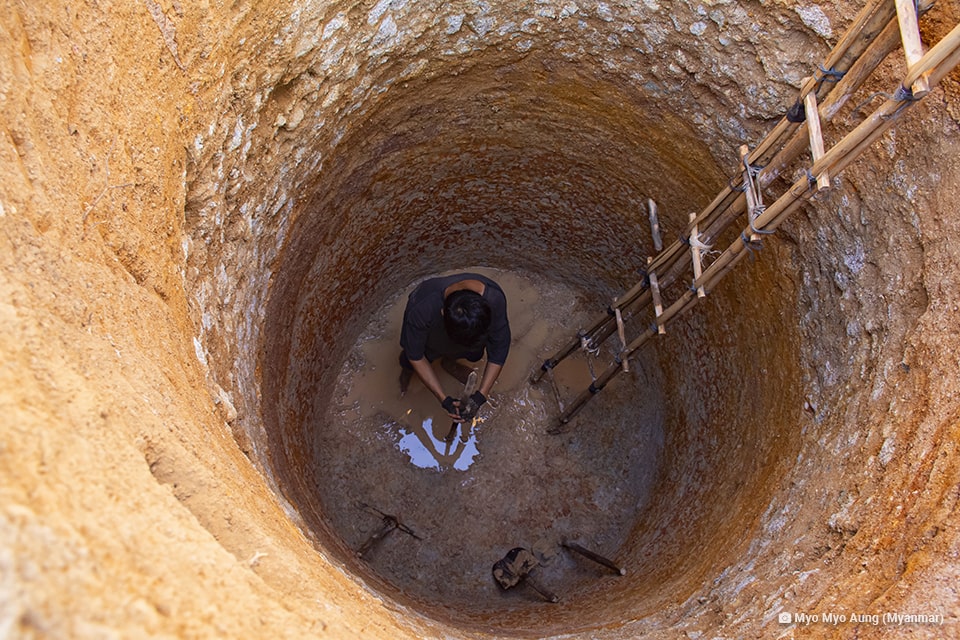
The Joint International Conference
It is against this backdrop that the Central Bicol State University of Agriculture (CBSUA) and the Southeast Asian Regional Center for Graduate Study and Research in Agriculture (SEARCA), in collaboration with Kansas State University, will organize the CBSUA–SEARCA Joint International Conference 2026:
The conference brings together biodiversity conservation, sustainable agriculture, tourism development, and disaster resilience into actionable policy and program strategies.
Location: CBSUA, Pili, Camarines Sur, Philippines
Dates: 18–21 March 2026
SHGBEE Program of SEARCA
Food security, climate change, and environmental degradation are interconnected challenges that hinder sustainable development. The synergy of restoring biodiversity, regenerating agriculture, and building enterprises became the foundation for developing the SHGBEE program of SEARCA.
Building on the success of SEARCA's School-plus-Home Gardens Project (S+HGP) in 2016, SHGBEE has emerged as a platform for promoting food and nutrition security, regenerative agriculture, biodiversity enhancement, and community enterprises through the synergy of school and home garden programs through sharing best practices, forging partnerships, and advocating sustainable development.
SHGBEE Projects
CBSUA and ICEEA
CBSUA has been hosting ICEEA for six years, serving as a global forum for cutting-edge research, innovative solutions, and best practices on education for sustainable development, environmental conservation, and agricultural advancements.
Partnering with SEARCA's SHGBEE program further expands its scope by integrating biodiversity enhancement, regenerative agriculture, and enterprise development.
Located in the Bicol Region, known to be rich in biodiversity yet highly disaster-prone, CBSUA also offers unique opportunities for field studies and community engagement, making it an ideal host for this joint event.
Conference Theme
"Policy Pathways to a Sustainable Future: Mainstreaming Biodiversity, Agri/Ecotourism, and Disaster Resilience"
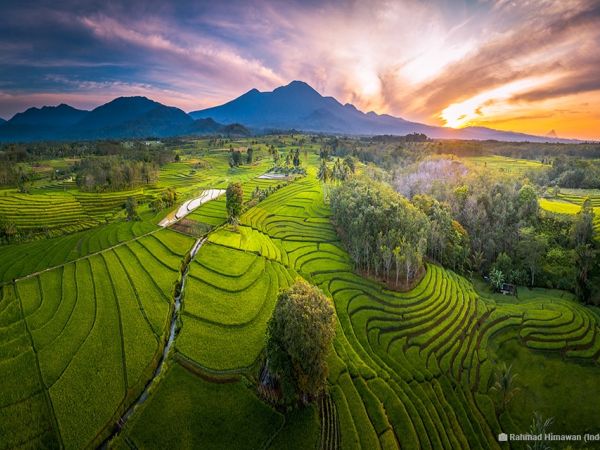
This theme encapsulates the interrelation of:
- Biodiversity
- Agriculture
- Agri/Ecotourism
- Disaster resilience
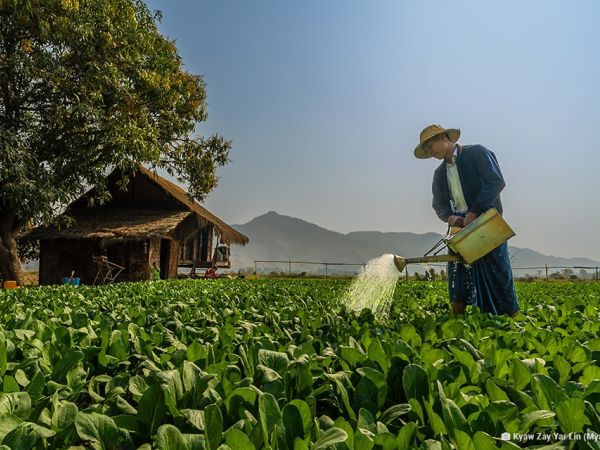
It highlights their roles in achieving the United Nations' Sustainable Development Goals (SDGs), particularly:
- Zero Hunger
- Climate Action
- Life on Land
With the conference being hosted in the Bicol Region, the theme has been expanded to include disaster resilience and agri/ecotourism to encapsulate the region’s unique challenges and opportunities. The region’s vulnerability to tropical cyclones makes disaster resilience a critically relevant theme in safeguarding the livelihoods and ecosystem. Furthermore, the rich biodiversity exemplified by Mt. Isarog and the natural landscape of the region's mountains, islands, and farmland offer a fitting setting to explore how agriculture and ecotourism can be synergized for sustainable development.
Objectives
The 2026 ICEEA7–SHGBEE4 aims to convene researchers, educators, policymakers, practitioners, and community stakeholders to foster knowledge exchange and collaboration in advancing biodiversity conservation, agri/ecotourism, disaster resilience, regenerative agriculture, education, and enterprise development.
Specifically, it seeks to:
Promote scientific research, best practices, technological advancements, and innovations that enhance biodiversity, regenerative agriculture, and sustainable food systems in the face of climate change
Showcase innovative approaches and community-based strategies that integrate biodiversity enhancement, agri/ecotourism, and enterprise development to strengthen ecological and socio-economic resilience, particularly in disaster-prone areas
Demonstrate how school and home gardens serve as platform for biodiversity enhancement, nutrition improvement, disaster resilience, and livelihood generation, while fostering stronger linkages among schools, homes, and communities
Create opportunities for interdisciplinary dialogue, partnerships, and policy discussions to address pressing global challenges related to biodiversity, agriculture, agri/ecotourism, and disaster resilience
Expected Outputs
1
Policy direction towards integrating biodiversity conservation, disaster resilience, and regenerative agriculture in the curriculum and community development and extension programs
2
Book of Abstracts/Conference Proceedings
3
Publication of selected papers to SEARCA’s Asian Journal of Agriculture and Development (AJAD) and CBSUA’s Multidisciplinary Research and Extension Journal (MREJ)
Intended Participants
The conference aims to bring together the following participants:
- diverse group of professionals, including educators, researchers, and students from local schools, state universities and colleges (SUCs), and other higher education institutions (HEIs) and research institutions
- international organizations
- policymakers from government units and other government agencies
- key stakeholders from the business/private sector and non-government organizations
Participants will come from the Philippines, neighboring countries in Southeast Asia, and beyond.
Thematic Areas
The Conference will focus on the following thematic areas:
Theme 1: School and Home Gardens as Community and Social Enterprise Hubs for Sustainable Development
This theme highlights school and home gardens as platforms that go beyond food production, serving as community and social enterprise hubs that promote nutrition, livelihoods, biodiversity conservation, and sustainable development.
- School-plus-home gardens for food security and nutrition
- Scaling up successful school and home garden initiatives
- Educational models for integrating agriculture, enterprise, and sustainability
- Engaging youth and communities in sustainable agriculture
- Social enterprises, innovation, and extension modalities for community empowerment and conservation
- Value-adding and marketing innovations in garden-based enterprises
- Sustainability and profitability of garden enterprises
- Circular economy models
- Policy research and institutional support for garden-based enterprises
Theme 2: Enhancing Biodiversity and Sustainable Food Systems for Schools, Homes, and Resilient Communities
This theme emphasizes the integration of biodiversity conservation into food systems in schools and homes to build resilient communities that are nutritious, sustainable, and climate-adaptive.
- Sustainable farming practices for biodiversity enhancement
- Community-based biodiversity programs for ecosystems e.g., mangroves and wildlife
- Integrating biodiversity, climate action, and disaster resilience in educational curricula
- Innovative interventions on biodiversity to mitigate the impacts of climate change and disasters
- Indigenous/traditional knowledge in agriculture and biodiversity conservation
- Innovative approaches to conserving terrestrial and aquatic ecosystems in agricultural landscapes
- Opportunities and innovations for conservation and regenerative agriculture
- Policy and governance frameworks
Theme 3: Promoting Agritourism and Ecotourism for Sustainable Development
This theme explores agritourism and ecotourism as drivers of sustainable development by creating livelihood opportunities, conserving natural resources, and strengthening cultural heritage.
- Sustainable agritourism or ecotourism models
- Agritourism or ecotourism enterprises impact to local economies.
- Cultural heritage as agritourism experiences
- Biodiversity as ecotourism experience
- Agritourism as harmonized faith in resource conservation (best practices in integrating agriculture, tourism, and conservation)
- Animal welfare in agritourism
- Community-based agritourism/ecotourism practices and rural livelihoods
- Issues and trends in agritourism and ecotourism policies
Theme 4: Leveraging Disaster and Climate-Resilient Initiatives for Agricultural and Ecotourism Systems
This theme underscores the importance of integrating disaster risk reduction and climate-resilient strategies into agriculture and ecotourism systems to safeguard livelihoods, ecosystems, and sustainable development gains.
- Climate-smart agriculture initiatives
- Climate-resilient agricultural communities
- Disaster risk reduction strategies for farming communities
- Leveraging ecosystem services to mitigate disaster risks
- Innovations in disaster risk reduction
- Sustainable soil and water management for climate resilience
- Governance and multi-sectoral partnerships for disaster preparedness, mitigation, response, recovery, and rehabilitation
Conference At-a-Glance
| 7:30 a.m.–5:30 p.m. | Option A
Option B
|
| 7:30 a.m.–5:00 p.m. |
|
| 8:00–8:30 a.m. | Registration |
| 8:30–10:00 a.m. |
|
| 10:00 a.m.–12:00 noon | PLENARY SESSION 1: Linking Gardens, Communities, and Biodiversity for Sustainable and Resilient Food Systems |
| 12:00 noon–1:00 p.m. | Lunch |
| 1:00–3:15 p.m. | Parallel Sessions |
| 3:15–3:30 p.m. | Networking Break |
| 3:30–4:15 p.m. | Poster Session and Guided Exhibit Walk (Thematic Areas 1-4) |
| 4:15–4:45 p.m. | PLENARY SESSION 2: Curriculum for the Future: Policy Directions on Biodiversity, Resilience, and Regenerative Agriculture Panel Discussion |
| 4:45–5:00 p.m. | Closing Program, Day 1 |
| 6:00–8:00 p.m. | Cultural Night and Dinner |
| 8:30–9:00 a.m. | Registration |
| 9:00–9:35 a.m. | Opening Program
|
| 9:35 a.m.–12:00 noon | PLENARY SESSION 3: Integrating Agritourism, Ecotourism, and Climate Resilience for Sustainable Futures |
| 12:00 noon–1:00 p.m. | Lunch |
| 1:00–3:15 p.m. | Parallel Sessions |
| 3:15–3:30 p.m. | Networking Break |
| 3:30–4:15 p.m. | Poster Session and Guided Exhibit Walk (Thematic Areas 1-4) |
| 4:15–4:45 p.m. | PLENARY SESSION 4: Policy Pathways for Sustainable Futures: Harnessing Agritourism and Ecotourism for Climate-Resilient Development Panel Discussion |
| 4:45–5:15 p.m. | Closing Program, Day 2 |
Guidelines for Submission of Abstracts and Posters
1 General Instructions
- All submissions must be written in English.
- Submissions should be original and not previously published or under review elsewhere.
- Authors may submit more than one abstract/poster, but only one will be considered for oral presentation (if applicable).
- At least one author of each accepted submission must register and present during the conference.
- Submit via the Conference Submission Portal (click the "Registration" tab/menu):
https://iceea.cbsua.edu.ph
2 Abstracts
- Format
- Length: 250–300 words (excluding references)
- File type: MS Word (.docx) or PDF
- Font: Times New Roman, 12 pt, single-spaced, A4 size, 2.5 cm margins
- Structure:
- Title (concise, max. 20 words)
- Author(s) and Affiliation(s) and contact information
- Abstract (200–250 words)
- Keywords (3–5)
- Introduction: Background, research objectives, and significance
- Literature review: Theoretical framework or industry context
- Methodology: Data collection and analysis
- Results and Discussion: Key insights and relevance to the conference theme
- Conclusions / Implications: Contributions to sustainability research and practice
- References (APA 7th edition format, max. 10 sources)
- File naming convention: ICEEA7SHGBEE4_Abstract_FirstNameInitialLastName.docx
(example: ICEEA7SHGBEE4_Abstract_JCruz.docx)
Review and Acceptance
Submissions will undergo peer review for clarity, originality, and relevance to the conference themes. Accepted abstracts will be scheduled for oral or poster presentation.
3 Poster Presentations
- Size: 30 inches (width) × 42 inches (length), portrait orientation
- File type for submission: PDF (high resolution)
- Content: Title, Authors, Affiliations, Introduction/Objectives, Methodology, Results (figures/tables/images), Discussion & Conclusions, Acknowledgments/References
- Design:
- Use legible fonts (minimum 24 pt for text, 40 pt for headings)
- Keep text concise; use visuals to highlight findings
- Ensure contrast for readability
- File naming convention: ICEEA7SHGBEE4_Poster_FirstNameInitialLastName.pdf
(example: ICEEA7SHGBEE4_Poster_JCruz.pdf)
Important Dates
Call for Abstracts/Posters
Abstract (Oral/Poster) submission deadline
Review phase
Notice of abstract acceptance
Full paper submission
For those competing for Best Paper Award, and for those who want to be included in the Conference Proceedings
Poster submission
Awards for Paper and Poster Presentations
Best Paper
Per Thematic Area/Parallel Session
Best Presenter
Per Thematic Area/Parallel Session
Best Poster
For the rest of all parallel sessions
Best Poster
For the rest of all parallel sessions
Best Poster
For the rest of all parallel sessions
Registration
Registration Fee's Structure
Mode of Participation | Early Bird4th week of August to 30 November 2025 | RegularStarting 1 December 2025 | ||
|---|---|---|---|---|
| Option A Conference Only* | Option B Conference and Mobile Workshops* | Option A Conference Only* | Option B Conference and Mobile Workshops* | |
| Filipino participants/presenters | PHP 5,500 | PHP 7,000 | PHP 6,000 | PHP 8,000 |
| Students | PHP 3,500 | PHP 5,000 | PHP 4,000 | PHP 6,000 |
| Foreign participants | USD 200 | USD 300 | USD 250 | USD 350 |
*Travel and accommodation arrangements are not included.
Bank Details for Conference Fees' Payment
Land Bank of the Philippines
- Account Name: CBSUA – Income Trust Fund
- Account Number: 2702-1008-12
- Swift Code: TLBPPHMM (For International Participants)
Development Bank of the Philippines (DBP)
- Account Name: CBSUA- Vlir-Ous Cacao Project
- Account Number: -01087-630-1
- Swift Code: DBPHPHMM (For International Participants)
Accommodation
For the list of recommended hotels near CBSUA, please visit: https://bit.ly/3VyBUys
Note: accommodation arrangement is not included in the registration fee.
